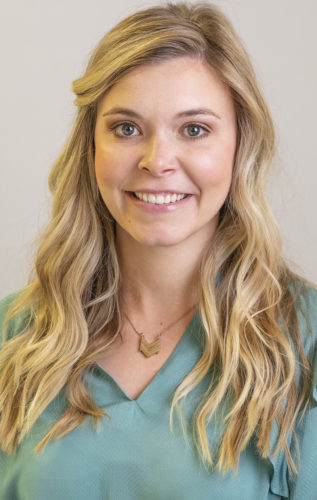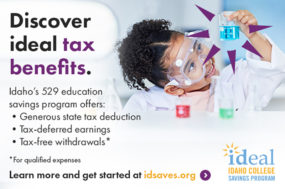Ag Proud – Idaho would like you to meet:
Kendra Kaiser
Director
Idaho Water Resources Research Institute, University of Idaho
Boise, Idaho
What education are you bringing with you to this position?
I received my bachelor of science degree in soil and water science from the Land Resources and Environmental Sciences Department at Montana State University and my Ph.D. in watershed hydrology and biogeochemistry from the Nicholas School of the Environment – Duke University. I was awarded a post-doctoral fellowship from the Northwest Climate Adaptation Science Center to develop skills in collaboratively producing usable science with resource managers and stewards. I cannot overstate the amount that I have learned from working with watermasters, irrigation district managers, irrigators and staff from local, state, federal and tribal agencies during my time in Idaho.
Please describe your agricultural background
I grew up in a rural part of eastern North Carolina where I started participating in 4-H as a middle schooler; I showed lambs one year and then steers through high school. I am so grateful for the amazing community who supported me and the mentorship of the Wilson County Extension staff who provided guidance as I developed my public speaking and critical thinking skills through the livestock judging team. My niece and nephew now show their pigs, cows, turkeys and rabbits at the Williams County Fair in Ohio; supporting them is a highlight of my fall.
What are your new responsibilities?
As the director of the Idaho Water Resources Research Institute (IWRRI), I will be working with stakeholders to prioritize state water research, outreach and collaboration efforts across the state. I will be working with IWRRI staff to expand our web presence and communication efforts, and increase submissions to the U.S. Geological Survey (USGS) 104b funding opportunity. I will continue my stakeholder-engaged research efforts and collaborate with the University of Idaho Extension to contribute to our outreach priorities. With the Idaho water research priorities in mind, we will build relationships and facilitate engagement between researchers and local partners to support identification of relevant funding opportunities.
What previous positions have you held?
I have been an assistant research professor at Boise State University in the department of geosciences for the past five years. Working at Boise State provided me with the opportunity to sharpen my grant-writing skills, develop a great community of colleagues across disciplinary backgrounds and learn about water resource issues across Idaho and the western U.S.
Who has made the biggest impact on your career?
Martin Doyle (professor at Duke University) opened my eyes to the idea of making an impact on water management beyond the traditional academic metrics. He has studied big rivers, water policy and markets, and through his diverse interests, he expanded the literature I read, as well as my professional network. I am inspired by the way Martin creates opportunities for people to have insightful dialog in group settings. Above all else, my mom – for always telling me that I can achieve anything I put my mind to.
How will you be of most help to producers in Idaho?
I hope to be helpful to Idaho producers by creating opportunities to listen to the needs of water users – what are your vexing water issues? Is there additional data or research that would be useful when you are planning for the year, for the next 10 years? I am really excited to help strengthen our water research community by creating opportunities for collaboration – those are the scenarios where creative solutions that are viable for communities emerge.
What goals would you like to accomplish while in this position?
My primary goal is to engage our stakeholders and research community to create a comprehensive set of water research needs and research capacity across the state. Equally important will be to collaboratively increase education and outreach about Idaho’s water resources and associated research to broad audiences, leveraging University of Idaho Extension and expanding existing IWRRI programming.



.jpg?t=1687979285&width=640)




